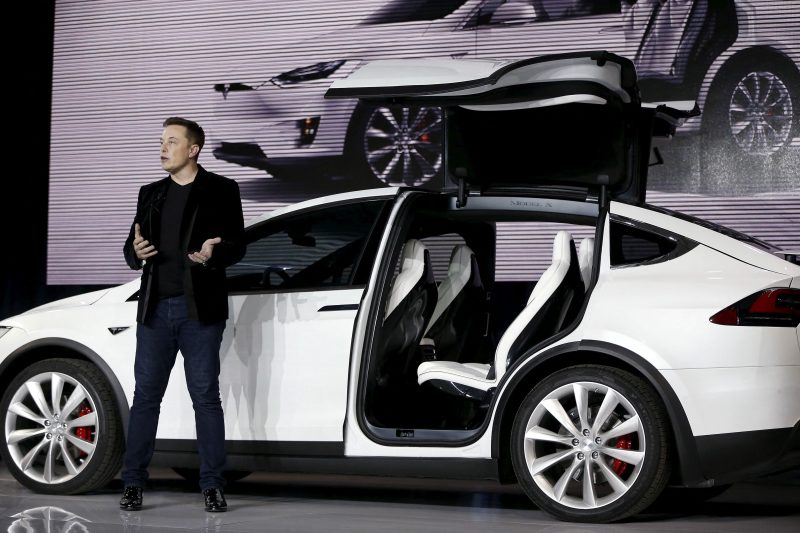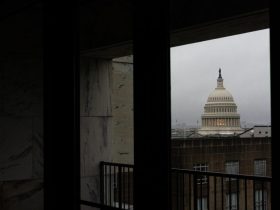Over the past few months, Elon Musk has been increasingly open about his political views. Having taken over Twitter, he appears to have embarked on a one-man effort to boost engagement on the site by stirring up controversy, often by elevating right-wing rhetoric and actors.
This is his prerogative, and it certainly stands in contrast to his own articulation of much of the rest of the leadership in the corporate world: overly obsequious to left-wing actors and riddled with performative “wokeness.” But, as many have pointed out, Musk isn’t only the owner of Twitter — he’s also CEO of Tesla Motors, a company famous for its electric vehicles. And it’s members of the political left who report more interest in buying electrical vehicles, according to Pew Research Center polling. They are twice as likely to, in fact.
So is Musk tweeting off his nose to spite his face? Well, if New York is a guide, maybe not.
I began to consider this question after coming across a tweet from a user calling himself “TBPInvictus.” (He asked that I not use his real name so as not to draw attention to his employer.) It noted that, in New York state, the counties with the most Teslas per capita were heavily Democratic. Those with the fewest were heavily Republican.
Here (finally) is the one table that sums up TSLA registrations in the state of NY vis-à-vis political lean. You’re doing yourself no favors, @elonmusk.
Sources: State of NY, Census Bureau pic.twitter.com/V3DZpaUmxV
— Invictus (@TBPInvictus) December 19, 2022
TBPInvictus was able to compile this data using data provided by the state. I was able to replicate the numbers, pulling the same data and comparing it to 2020 presidential vote margins in each of the state’s 62 counties. Instead of simply ordering them, though, I created a scatterplot, showing how car ownership rates and 2020 margins compare.
This was the result.
You’ll notice a few things. First, that Trump-voting counties are generally unlikely to have high rates of Tesla ownership. But second, that more-Democratic counties are not more-Tesla-owning ones. The peak is nearer the middle of the graph, where margins were narrower.
You’ll also notice that I included a rough scale of incomes in those places. In Westchester County, the median annual household income in 2019 was about $97,000. In the Bronx, it was about $40,000. And that probably explains most of the difference.
First of all, there is a rough correlation between income and politics by county in New York. More Democratic counties are, generally, ones with higher household incomes.
But if we take our county-level data and bucket it into six groups of about 10 counties each, we can see how much more important income is than politics. The most-Democratic counties are more likely to own Teslas. But the wealthiest ones are far more likely to do so.
We can show this in another way. Contrasting those sextile groups (six categories of 2020 vote; six categories of income) against each other, we see that wealthier heavily Democratic counties have higher ownership rates while the poorest doesn’t. Even in the fourth-best set of counties for Democrats in 2020, it’s the wealthiest that have the highest ownership rates.
This doesn’t mean it is rich Republicans buying the cars, of course. In both my and TBPInvictus’s analyses, we’re subject to the ecological fallacy: drawing conclusions about the residents of a county from broad characteristics of the county. It may be rich Republicans buying Teslas in heavily Democratic counties; it may be poorer Democrats buying them in more moderate ones. It’s hard to say.
But the central question we’re considering is whether Musk’s Twitter performances will push away a market that won’t be filled by Republicans. So it’s worth pointing out that Republicans tend to be wealthier than Democrats, so if income rather than politics is the spur for buying a Tesla, Musk will do okay.
Data on voter registrations from L2 shows how income and party overlap. Here, we’re using modeled data on household incomes compiled by L2 and, in some states, modeled partisanship. (Which is to say that L2 analyzes other data sets to estimate household incomes or party.) That shows us that about half of Democrats live in households with incomes below $75,000. About 60 percent of Republicans live in households above that level.
Put another way, there are perhaps 26.3 million Republicans who live in households with incomes at or above $100,000 annually — higher than the median in Westchester. Tesla sells more electric vehicles than its competitors, but only about 350,000 in 2022. If Musk can become the go-to car-seller to rich Republicans, there’s a big market to tap.
None of this is to say that Musk may not be hurting his position with the audience most likely to buy Tesla’s cars: wealthy Democrats. But given how income seems to correlate to Tesla ownership, working to appeal to members of the wealthier political party may not be a net loss in the long run.
Lenny Bronner contributed to this report.








